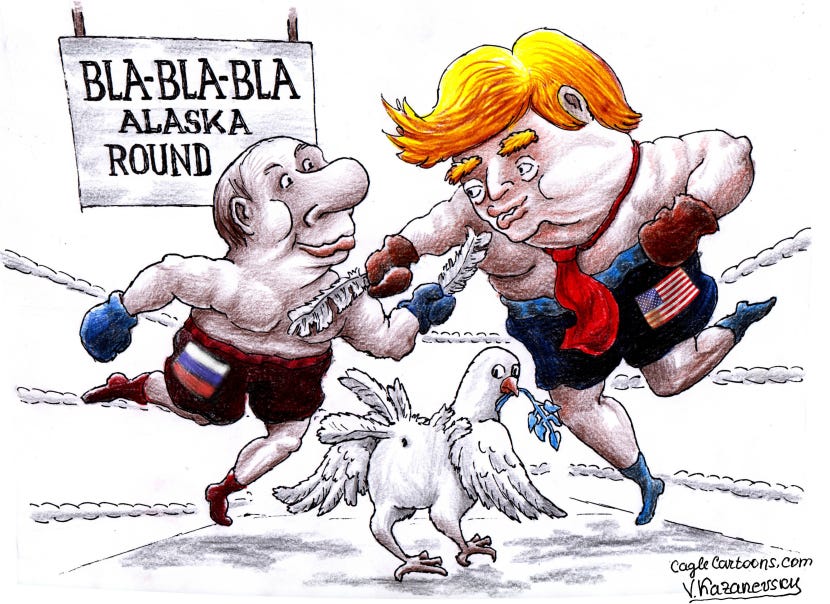The art of the con in Alaska
Alaska was cringe - but, it's just round one.
Donald Trump walked into that Alaska meeting ready to channel his inner Madeleine Albright and find what she famously called his "cahones." He was going to stand his ground, call out Putin's "bullshit," and demand the ceasefire he'd promised. What emerged from Joint Base Elmendorf-Richardson …




